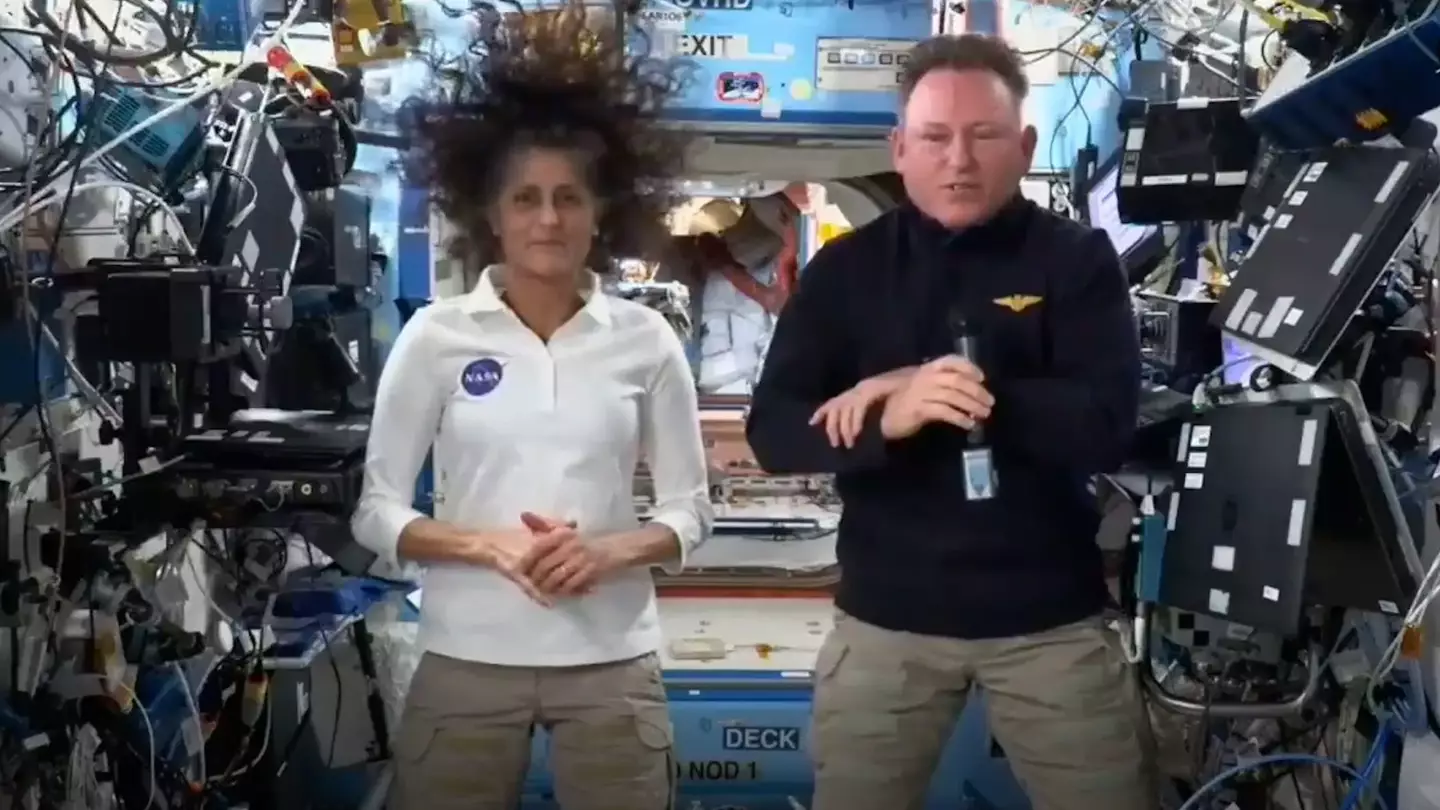.png)
Topics: Health, International Space Station, NASA, Space, Science
.png)
Topics: Health, International Space Station, NASA, Space, Science
After spending 278 days longer in space than previously intended, NASA's Butch Wilmore and Suni Williams splashed down to Earth this week, and an expert has weighed into changes they might experience with their vision.
Tina Patel, a contact lens optician and eye health expert at Feel Good Contacts, has revealed how the astronauts could experience permanent changes to their eyesight after their initial eight-day space taster changed into a nine-month life onboard the ISS.
"Spending months in microgravity doesn’t just test an astronaut’s endurance—it could physically alter their eyes. With no gravity pulling fluids downward, more fluid shifts toward the head, increasing pressure inside the skull, known as SANS (spaceflight-associated neuro-ocular syndrome)," Patel explained.
"This can flatten the back of the eye, change its shape, and in some cases can lead to swelling of the optic nerve, a condition known as papilledema. As a result, some astronauts experience blurred vision, difficulty focusing, and even long-term changes to their eyesight.
Advert
"While fluid buildup is a major cause, scientists also suspect that prolonged exposure to cosmic radiation may contribute to retinal damage and accelerate eye ageing. The effects are still being researched by scientists."

Fortunately for Wilmore and Williams, if they do succumb to those symptoms, there is a way to fix their eyesight on Earth.
Patel continued: "Once astronauts return, they undergo extensive eye exams, including optical coherence tomography (OCT) scans, which provide high-resolution images of the retina to detect any damage.
"Some astronauts recover with prescription lenses, while others need continued monitoring due to persistent nerve swelling. To prevent these issues on future missions, NASA is testing countermeasures like lower-body negative pressure suits, which help pull fluids back toward the lower body, simulating the effects of gravity.
"Specialised eye exercises and rehabilitation techniques may also aid recovery."

Finally, if you're hopeful of launching into space, or whether you're currently out there or have returned... you'll want to know how long these symptoms can last for.
"Recovery times vary—some astronauts see improvements within weeks, while others experience symptoms for months or even years," the eye expert advised.
"In certain cases, structural changes to the eye appear to be permanent, particularly when swelling has put prolonged pressure on the optic nerve. This raises concerns for deep-space travel, where astronauts won’t have access to immediate medical care.
"Understanding and addressing these vision changes is not only vital for future Mars missions but also has implications for Earth-based conditions like idiopathic intracranial hypertension, which similarly affects the eyes due to increased pressure inside the skull."
Let's hope the now-rescued Wilmore and Williams don't have any permanent issues with their vision.